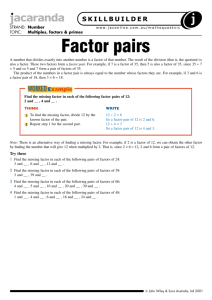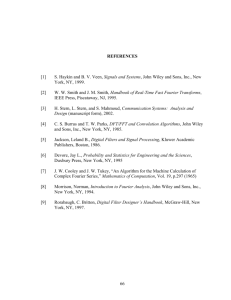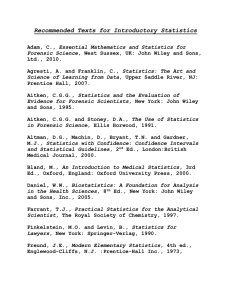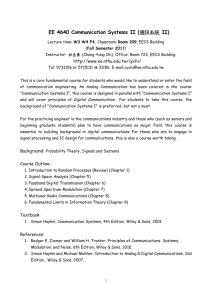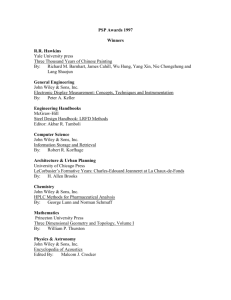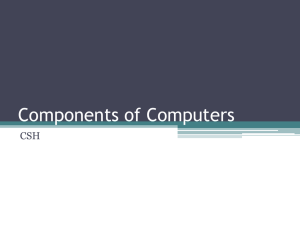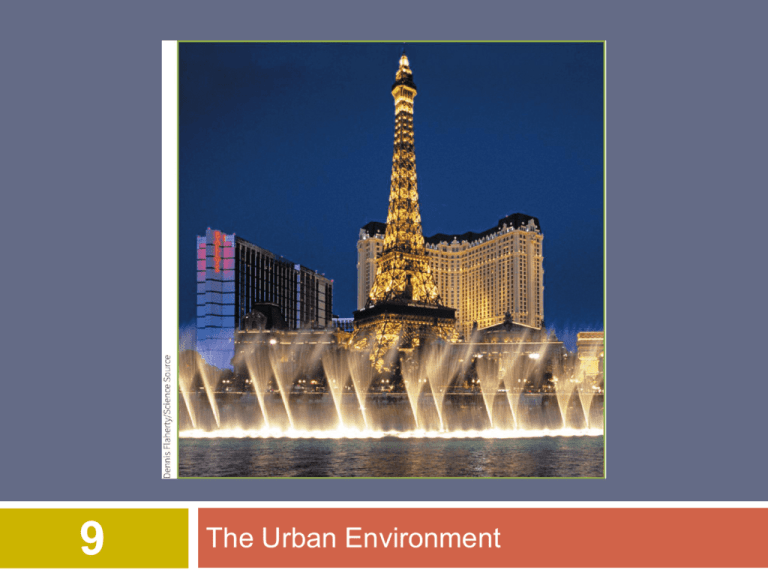
9
The Urban Environment
Overview of Chapter 9
Population and Urbanization
Characteristics
of Urban Population
Urbanization Trends
City as an Ecosystem
Environmental
Problems in Urban Areas
Environmental Benefits of Urbanization
Urban Land Use Planning
Transportation
and Urban Development
Suburban Sprawl
Making Cities More Sustainable
© 2015 John Wiley & Sons, Inc. All rights reserved.
Las Vegas, Nevada
Site of natural spring
Las Vegas receives ~4” precipitation annually
Hoover Dam provides water and allowed Las
Vegas to grow
Competes
with other western
states for water
Lots of impervious surfaces
and energy demand
Effects from climate change?
© 2015 John Wiley & Sons, Inc. All rights reserved.
Population and Urbanization
Milestone: As of 2008, half of the world’s
population lives in urban areas
© 2015 John Wiley & Sons, Inc. All rights reserved.
Population and Urbanization
Urbanization
Process
in which people increasingly move from rural
areas to densely populated cities
Jobs define urban vs. rural, not populations
Rural
area occupations involve harvesting natural
resources
Urban area occupations involve jobs not connected
with natural resources
People are moving to cities due to decrease in
employment opportunities in rural areas
© 2015 John Wiley & Sons, Inc. All rights reserved.
Characteristics of Urban Population
Basic characteristics of city populations:
Diverse
population in terms of race, ethnicity,
religion and socioeconomic status
Younger population in cities than local rural area
Influx
into cities
More
males in
cities in developing
nations
More females in
cities in developed
nations
© 2015 John Wiley & Sons, Inc. All rights reserved.
Urbanization Trends
Urbanization is increasing rapidly
Especially in developing countries
World’s 9 of 10 largest cities are in developing
countries
Megacities – cities > 10 million inhabitants
© 2015 John Wiley & Sons, Inc. All rights reserved.
Urbanization Trends
Urban Agglomeration
Urbanized
core region that consists of several
adjacent cities or megacities and their surrounding
developed suburbs
United States Urban
Agglomerations
© 2015 John Wiley & Sons, Inc. All rights reserved.
Substandard Housing & Homelessness
Typically occupied
by squatters
1/3 of urban
population in
developing countries
are squatters
No city services
Water, sewage,
garbage collection,
police and fire
protection
© 2015 John Wiley & Sons, Inc. All rights reserved.
City as an Ecosystem
Urban Ecosystem: A heterogeneous, dynamic
urban area studied in the context of a broader
ecological system
Urban ecology studied based on four variables:
POET
Population
Organization
Environment
Technology
© 2015 John Wiley & Sons, Inc. All rights reserved.
City as an Ecosystem
Population
refers to the number of people and the
factors that change this number (b,d,i,e) as well as the
composition of the city in terms of age, sex, ethnicity,
etc.
Organization is the social structure of the city, including
economic policies, method of government, etc.
Environment is the natural setting (near a river, desert,
mountains, etc.) as well as the city’s associated
infrastructure (bridges, roads, buildings, etc.)
Technology includes human inventions that impact the
city, such as aqueducts, air conditioning, and other
innovations in building technology.
© 2015 John Wiley & Sons, Inc. All rights reserved.
City as an Ecosystem
© 2015 John Wiley & Sons, Inc. All rights reserved.
City as an Ecosystem
Phoenix, Arizona
Along
Long
with Baltimore, comprise urban LTER sites
Term Ecological Research
Studies and measurements of human
environmental interactions
Affect
of cities on animals
Hydrologic cycle
Heat
Many others
© 2015 John Wiley & Sons, Inc. All rights reserved.
Cities are dynamic open systems
© 2015 John Wiley & Sons, Inc. All rights reserved.
Environmental Problems in Urban
Areas
Growing urban areas affect land use patterns
Fragment
wildlife
Encroach wetlands, forests, desert, etc.
Impermeable surfaces and urban runoff
discharged into waterways
Motor
oil, lawn fertilizers, heavy metals
Noise pollution
© 2015 John Wiley & Sons, Inc. All rights reserved.
Environmental Problems in Urban
Areas
Brownfields
Urban areas of abandoned industrial or residential
sites that may be contaminated from past use
Reclamation of brownfields in Pittsburgh, PA was
successful (below) in 1980s
© 2015 John Wiley & Sons, Inc. All rights reserved.
Environmental Problems in Urban
Areas
Long commutes
Buildup
of emissions due to cars and industry
Urban heat island
Local
heat buildup in an area of high population
density
Affect local air currents and weather conditions
Contribute to buildup of pollutants- dust domes
© 2015 John Wiley & Sons, Inc. All rights reserved.
Urban Heat Island
Temperature variations on a summer afternoon
© 2015 John Wiley & Sons, Inc. All rights reserved.
© 2015 John Wiley & Sons, Inc. All rights reserved.
Environmental Benefits of Urbanization
Well-planned city can benefit the environment
Reduces
pollution
Preserves rural areas
Compact Development
Design
of cities in which tall, multiple-unit
residential buildings are close to shopping and
jobs, and all are connected by public
transportation
© 2015 John Wiley & Sons, Inc. All rights reserved.
Urban Land-Use Planning
Process of deciding the best use for
undeveloped land in a given area
Based on economic concerns
Influenced by political and economic factors
Regulated through zoning
Commercial
Residential
Industrial
Property
owners must meet zoning ordinances
© 2015 John Wiley & Sons, Inc. All rights reserved.
Urban Land-Use Planning
Gentrification
Movement
of wealthier people back to older, rundown homes that have been renovated
Often displaces urban poor who cannot afford it
Land-use planning
Process
of deciding the best uses for land in a
given area
Results in zoning (use zones)
David Harvey 1970s and Baltimore, Maryland
© 2015 John Wiley & Sons, Inc. All rights reserved.
Transportation and Urban
Development
Transportation
availability affects
city’s spatial
structure
Ex: An east coast
U.S. city
(a)
1700–1850
(b) 1850–1910
(c) 20th century
© 2015 John Wiley & Sons, Inc. All rights reserved.
Transportation and Urban
Development
Rapid transit
systems to
efficiently handle
large numbers of
people
Many cities facing
investment
choices for
transportation
© 2015 John Wiley & Sons, Inc. All rights reserved.
Suburban Sprawl
Suburban Sprawl
Patchwork
of vacant and developed tracts around
the edges of cities; contains low population density
Problems
Loss
of wetlands
Air and water
pollution
Loss of
biological
habitat
© 2015 John Wiley & Sons, Inc. All rights reserved.
Suburban Sprawl
Smart Growth: urban planning and
transportation strategy that mixes land uses
Commercial
Manufacturing
Entertainment
Housing
At least 11 states currently using these
management laws
© 2015 John Wiley & Sons, Inc. All rights reserved.
Making Cities More Sustainable
Characteristics of a sustainable city
Clear,
cohesive urban growth policies
Efficient use of energy and other resources
Reduction of pollution and waste
Large areas of green space
Designed to be people-centers, not car-centered
Food grown IN the city (rooftop gardens)
Compact development
© 2015 John Wiley & Sons, Inc. All rights reserved.
Making Cities More Sustainable
Rise of urban gardening and
use of rooftops
Urban
development and
sprawl encroaches on local
farmland
Increases food security,
relationship with land and
food
Many restaurants,
businesses, groups looking to
creatively produce local food
© 2015 John Wiley & Sons, Inc. All rights reserved.
Green Architecture
Rise of architecture that is sustainable (and
even positive for surrounding environment)
Wastewater
recycling
Efficient lighting
Sustainable building
materials
© 2015 John Wiley & Sons, Inc. All rights reserved.
Barcelona, Spain: A People-centered
City
© 2015 John Wiley & Sons, Inc. All rights reserved.
Sustainable Cities
Case in Point - Curitiba, Brazil
© 2015 John Wiley & Sons, Inc. All rights reserved.

